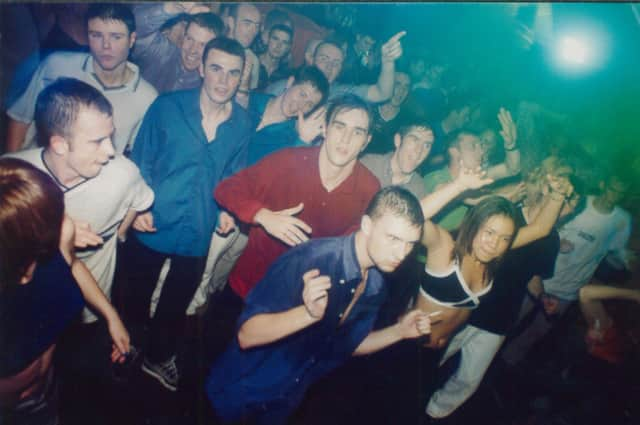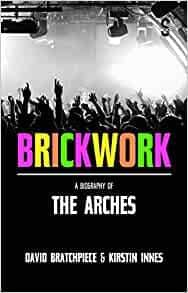Book review: Brickwork: A Biography of The Arches by David Bratchpiece & Kirstin Innes


A man dressed as a chef meticulously peels potatoes from the top of a plinth for four hours straight. A future pop star dresses up as an alien and chases terrified punters around an industrial warren. A wooden dancefloor is laid and painted in a matter of hours to satisfy a licensing requirement.
Such was the can-do, let’s-do, will-do and did-do ethos of The Arches, the multi-arts venue which pulsed with all manner of cultural life in the railway arches under Glasgow’s Central Station for 24 years before an enforced closure - described by The Scotsman’s theatre critic Joyce McMillan as “a real act of cultural vandalism” – turned the lights out on this truly unique (ad)venture.
Advertisement
Hide AdLike any legendary venue, the memories and stories linger. The Arches gave generations of Scottish clubbers a place to escape on a Friday and Saturday (and Sunday and mid-week) night – it was the birthplace of the “here we f***ing go” chant - and kickstarted the careers of esteemed theatre-makers such as Kieran Hurley, Cora Bissett, Gary McNair and the late Adrian Howells (and, technically, Franz Ferdinand frontman Alex Kapranos, the man in the alien suit).


To confirm the old cliché, it was the people who made The Arches (though the atmospheric environment definitely contributed). Hence the shrewd choice to celebrate its freewheeling spirit with an oral history of the venue, related by its staff, stars and guests, and edited into a loving, entertaining narrative by two former employees, the novelist Kirstin Innes and comedian/writer David Bratchpiece.
The authors open with a whizzing bullet point history of Glasgow, like a fast forward movie montage to the moment of incarnation, and then give the story over to those who made it up as they were going along – not least Arches founder Andy Arnold who spotted the potential in a space which had been derelict for sixty years before it was fitted out to host the Glasgow’s Glasgow exhibition in 1990.
This centrepiece of Glasgow’s watershed year as European City of Culture was unloved by its citizens, unlike the DIY venue which emerged in its wake to exemplify the rogue spirit of community creativity which took hold across the city that year and persists to this day.
In the early years, stage sets were foraged from skips and wages were for wimps but eventually The Arches hit its stride and made its name as an arts venue by day/evening, clubbing mecca by night, with the latter incarnation funding the former. However, its unique business model was also its downfall. Following two drug deaths in two years, their nightclub license was not renewed and, without alternative funding, there they f***ing went. The sadness and anger at The Arches’ avoidable demise pervades the pages of Brickwork, but the joy and hilarity of its potato-peeling salad days resonates far, like the echo through the building.
Brickwork: A Biography of The Arches by David Bratchpiece & Kirstin Innes, Salamander Street, £12.99
A message from the Editor:
Advertisement
Hide AdThank you for reading this article. We're more reliant on your support than ever as the shift in consumer habits brought about by coronavirus impacts our advertisers.
If you haven't already, please consider supporting our trusted, fact-checked journalism by taking out a digital subscription at https://www.scotsman.com/subscriptions